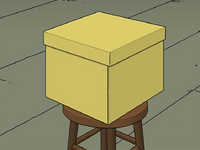Actually, the key point is that in the early universe, from any given point in the universe, the observable universe was below the quantum scale. That says nothing about the total size of the universe at that time.Martymer said:True, but this logic only applies to mathematics. The universe did not go from zero to infinite in a flash, as is the case with the natural number line, but from quantum-scale to non-quantum-scale-but-still-finite (no one can say with any certainty if it actually had zero size, because we currently don't have a working theory for how gravity behaves at the quantum-scale), and then kept growing.
Actually, there are many number systems where infinity is consider to be a number.The problem is the mathematical concept of infinity. It's not a number (so yeah, you did butcher his statement ;-) ), but rather the idea that "whatever number I'm thinking of is greater than whatever number you're thinking of".
You're constraining yourself pointlessly.beddo said:The number line refers to the Real set, it is infinite by definition, it is not expanding.
Yes, the standard view real number line is considered to be infinite and stationary, but that doesn't mean you can't talk about it expanding or contracting and consider the consequences.
Not necessarily, they are many measurement metrics that can be placed on the real numbers. Saying the distance between 0 and 1 is 1 is just a standard, not a necessity.If you were to place the natural numbers on the real line there would be a distance of exactly one between each number else they would all be at the same point.
They are an infinite number of natural numbers, I've never said otherwise. My point is talking about what happens when those infinite number of numbers are shrunk down until they are all in the same place.However, it's simpler to think that there are an infinite number of natural numbers

